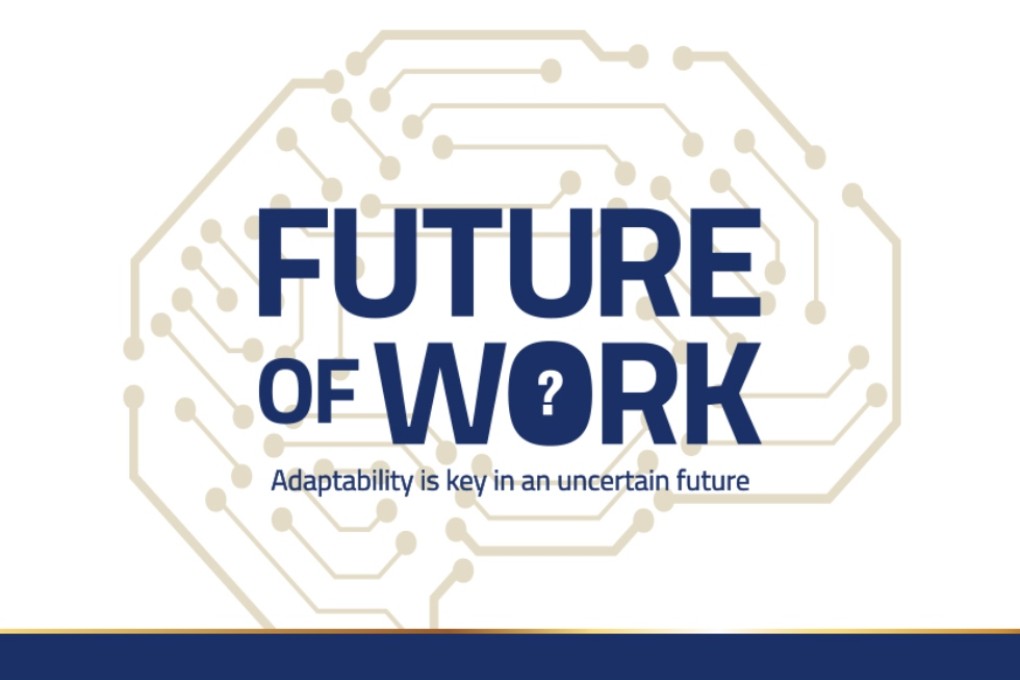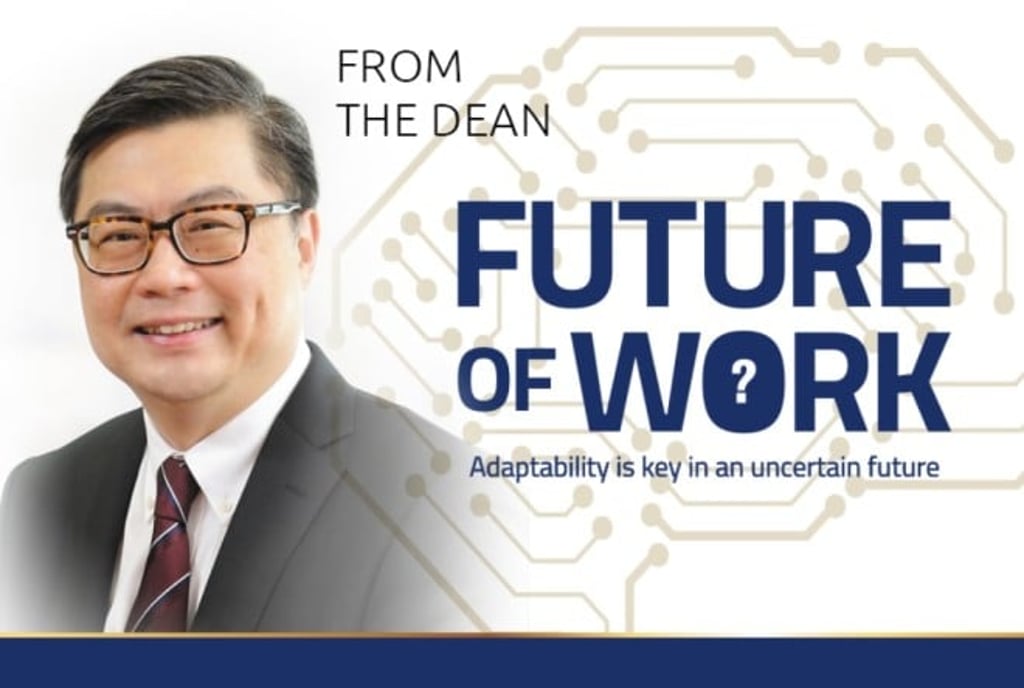From the Dean on "Future of Work"

[Sponsored Article]

The HKUST Business School is playing an active role in framing this debate. Collaborating with the Association of Pacific Rim Universities (APRU) - an organization consisting of 50 research institutes from across the region, we worked with a team of scholars from different countries to produce a study report called - Transformation of Work in Asia Pacific in the 21st Century.
This study was undertaken with a number of ambitious aims: to analyze how a digital economy will transform the future of work, address economic risks, and develop new thought leadership to empower policy makers and civil society. In this issue, you can read about the fruits of this collaboration, which is only the start of our ongoing research effort on the impact of technology on the future of employment.
You will hear from Mr Bernard CHAN, Convenor of the Executive Council of Hong Kong, who advocates introducing more modern and innovative forms of teaching into the school system. Dr LAW Chi Kwong, the Secretary for Labour and Welfare, shares his views on the ways in which Hong Kong’s workforce must be supported as it adapts to the new employment landscape ahead. Dr Rosanna WONG, Senior Advisor with The Hong Kong Federation of Youth Groups, explains the skills our young people are going to need in the future.
The business perspective is presented in three of our articles: Mr Philip TSAI, Chairman of Deloitte China, explains the ways in which technology is already reshaping accounting and auditing work; Mr Michael LEUNG, CEO of BOA International Financial Group, outlines its impact on the financial services industry; and, our alumnae, Ms Maria HUI, HR Director with Microsoft Hong Kong, gives us the view from inside a tech giant.
Other bodies also have a role to play in determining the policies required to make the transition. Ms Margaret CHENG, President of the Hong Kong Institute of Human Resource Management, talks about what it will take to maintain and strengthen our employability; and Mr John FLATO, Senior Vice President of the Stockholm-based Future Talent Council, shares the value of overseas experience.
Of course, our faculty from different disciplines have long taken a keen interest in this topic, and we hear from several of them. Professor GONG Yaping explains how the emergence of new technologies will lead to certain competencies becoming less highly-valued, but boost the demand for others. Professor Albert PARK looks into the impact of technology on the labor market in China and other market. Professor WANG Jing and Professor CHEN Yanzhen discuss the online labor markets including how the internet affects job seekers’ strategies.
And last, but definitely not least, we have a report on the fascinating conversation with three eminent academics, Professor Edward SNYDER from Yale, Professor Dipak Chand JAIN from CEIBS, and Professor Arun RAI from Georgia State University, during their visit to our School. In the course of a wide-ranging examination of the effects of digital technology, we touched on the consequent disruption that may be coming, not only to industries and societies, but also business education. With technology streamlining the way we can teach the fundamentals of a subject, business schools now have an exciting opportunity to move up the value chain by aligning education curriculum and learning experience with the vibrant socio-economic development of the society.
Professor TAM Kar Yan
Dean